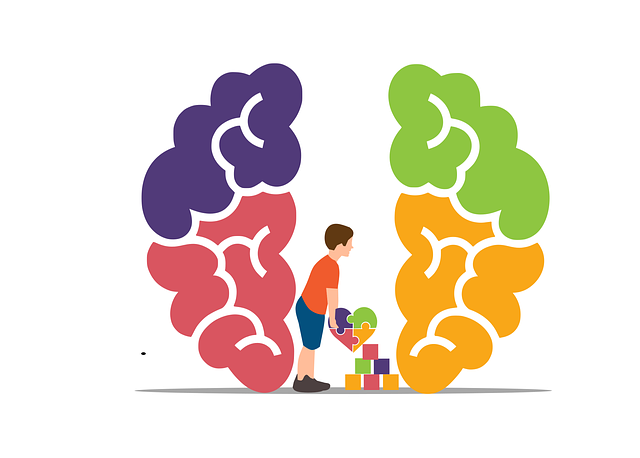Lone Tree First Responders Therapy (LTFRT) is a leading provider of tailored mental health support for first responders, focusing on building resilience through the RFM model – Response, Feedback, and Meaning. Their approach combines therapy exercises, mood management, emotional regulation, journaling, and self-awareness to enhance coping skills, stress management, and overall mental wellness. By prioritizing these initiatives, emergency response organizations can facilitate effective workshops, improving effectiveness and safety within their systems. LTFRT's comprehensive programs, grounded in Mind Over Matter principles, empower first responders to face high-pressure situations with resilience and confidence, preventing burnout and ensuring they remain effective in serving their communities.
Resilience is a vital asset for first responders facing high-stress situations. This article explores the implementation of RFM (Resilience, Fitness, and Mental Health) as a powerful tool for building endurance among emergency workers. We delve into the significance of Lone Tree First Responders Therapy, a unique approach enhancing mental resilience. By combining physical resistance training with evidence-based strategies, we aim to equip professionals with the tools needed to navigate challenging environments. Discover how these methods contribute to the overall well-being and effectiveness of first responders.
- Understanding RFM and Its Role in Resilience Building
- The Importance of Lone Tree First Responders Therapy
- Implementing Resistance Training for Emergency Workers
- Effective Strategies for Mental Resilience in High-Stress Occupations
Understanding RFM and Its Role in Resilience Building

Resilience is a vital asset for individuals to navigate life’s challenges and setbacks. Lone Tree First Responders Therapy (LTFRT) has recognized this need and developed effective strategies, such as the RFM model, to enhance resilience among its community members. RFM stands for Response, Feedback, and Meaning, a framework that guides exercises aimed at building mental fortitude.
By focusing on these key aspects, LTFRT offers valuable tools for coping skills development. For instance, mood management techniques are integrated into their therapy sessions, encouraging individuals to recognize and regulate emotional responses. Additionally, the therapy promotes journaling as a Mental Wellness Journaling Exercise Guidance, allowing people to process experiences, reflect on feedback from significant events, and derive meaning from them. These exercises contribute to overall mental wellness, empowering individuals to bounce back stronger in the face of adversity.
The Importance of Lone Tree First Responders Therapy

In the realm of resilience building and post-trauma support, Lone Tree First Responders Therapy stands as a vital pillar for mental health professionals and first responders. This specialized therapy recognizes the unique challenges faced by those who engage in high-stress, life-or-death situations regularly. The implementation of self-awareness exercises tailored to first responders’ experiences is a game-changer. These exercises help them process and cope with the emotional weight of their duties, fostering a sense of balance and mental fortitude.
By prioritizing Lone Tree First Responders Therapy, organizations can facilitate effective stress management workshops. This proactive approach ensures that mental health professionals are equipped to handle not just the physical demands but also the psychological toll of their roles. Moreover, it underscores the organization’s commitment to risk management planning, acknowledging that the well-being of first responders is indispensable for the overall effectiveness and safety of emergency response systems.
Implementing Resistance Training for Emergency Workers

Implementing Resistance Training for Emergency Workers
In the high-pressure world of emergency response, where every second counts and resilience is paramount, incorporating resistance training into the regimen of first responders can significantly enhance their physical and mental preparedness. Lone Tree First Responders Therapy recognizes the vital role that robust physical conditioning plays in ensuring these heroes can handle the demanding nature of their work. By integrating structured resistance exercises, they aim to fortify both the body and mind, preparing emergency workers to confront challenging situations with unwavering resilience.
This approach aligns perfectly with Mind Over Matter Principles, emphasizing the connection between physical strength and mental toughness. Conflict Resolution Techniques are also honed through this training, as exercises often simulate stressful scenarios that require calm thinking and swift decision-making. Moreover, regular resistance training serves as a confidence booster, instilling in first responders a sense of self-assuredness, which is crucial when facing life-threatening emergencies.
Effective Strategies for Mental Resilience in High-Stress Occupations

Building mental resilience is paramount for individuals in high-stress occupations, such as first responders, who frequently face traumatic and demanding situations. Effective strategies for enhancing mental resilience include regular practice of mindfulness techniques to foster present-moment awareness and emotional regulation. Incorporating routine physical activity, adequate sleep hygiene, and a balanced diet can also significantly contribute to maintaining optimal mental health.
Lone Tree First Responders Therapy has been instrumental in developing tailored programs that address the unique challenges faced by these professionals. These programs often include group therapy sessions, peer support networks, and education on mood management techniques. By prioritizing mental wellness through public awareness campaigns development, these initiatives help first responders build resilience, cope with stress, and prevent burnout, ensuring they can continue to serve their communities effectively.
In conclusion, implementing RFM and resilience building exercises, such as Lone Tree First Responders Therapy, is paramount for preparing emergency workers to face high-stress situations. By integrating resistance training and effective mental resilience strategies, we empower our first responders to build strength, cope with trauma, and maintain emotional well-being. This holistic approach ensures they are equipped to provide the best care possible, fostering a culture of resilience within their ranks.











